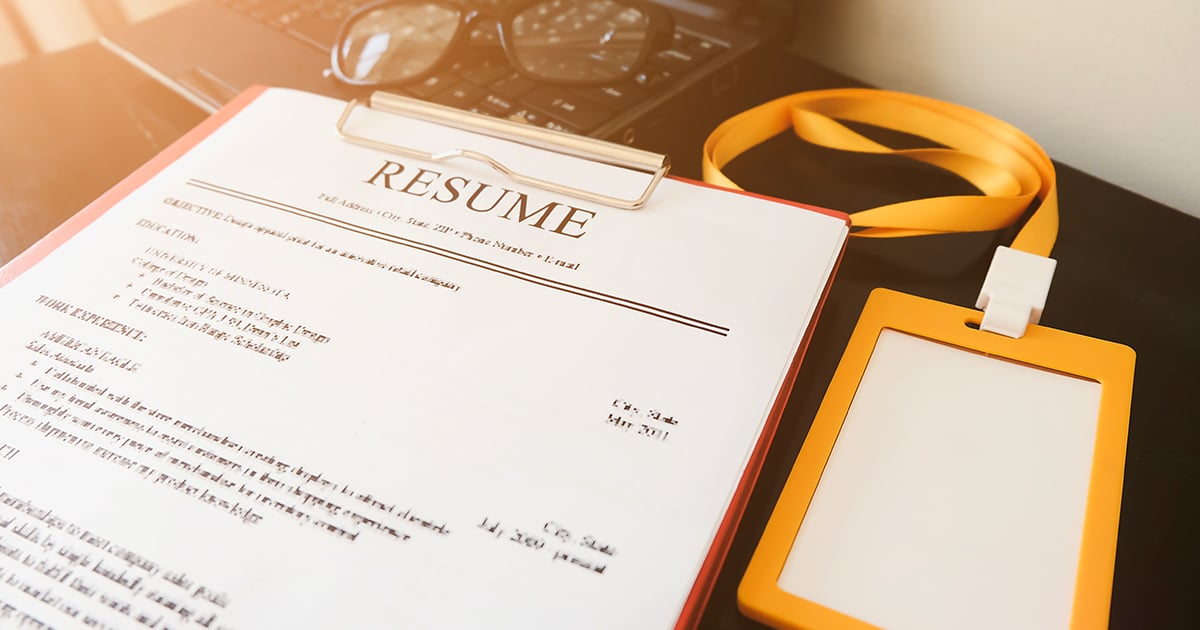
So, you’ve begun crafting your resume using our top tips for success. Want to know how to make your resume stand out even further? To avoid derailing your job search, we've come up with a quick list of common blunders to check against before sending your resume off to potential employers.
1. Incorrect Contact Information
Wondering why you're not getting many leads? One of the most vital things to include in a resume is your contact information. However, it is imperative your phone number, email, mailing address, and other methods of contact are correct. While this may seem like a simple tip, it could cost you a huge opportunity.
2. Typos and Grammatical Errors
I’m sure you’ve heard this one before, but we’ve seen enough typos on resumes to know it’s worth repeating. Grammatical errors and silly typos can lead employers to read between the lines and conclude that the applicant is a poor writer or doesn’t take their career seriously. Always double-check your resume before submitting.
3. Canned Summary
Many candidates lose readers right at the start with overused canned statements like, “Accomplished professional seeking career growth."
Instead, give employers something with a little more meat. For example: "An accomplished marketing manager who developed award-winning campaigns for Fortune 500 clients, contributing to 50% increase in stock value.”
4. Visually Busy
Want to know how to make your resume stand out visually? A resume with wall-to-wall text and five different fonts can give the reader a headache. Avoid a daunting and unnecessarily busy resume by showing it to others before sending it out. Do they find it visually attractive? A good rule of thumb to follow: if it’s hard on the eyes, revise.
5. Lack of Specifics
Your resume shouldn’t simply state the obvious to a hiring manager. Employers need to understand what an applicant has accomplished. Take a look at the following examples:
A. Worked with employees in a restaurant setting
B. Recruited, hired, trained and supervised more than 20 employees in a restaurant with $2 million in annual sales
Both phrases could describe the same person, but the details and specifics in example B are more likely to grab an employer's attention.
6. Attempting the "One-Size-Fits-All" Approach
Make sure each employer receives a resume customized to show how and why you fit the specific position they are looking to fill at their specific organization. Generic resumes are easy to spot, and almost always end up getting tossed. They highlight an applicant’s lack of effort, initiative, and interest – not the impression an active job-hunter should be looking to give.
7. Highlighting Duties Instead of Accomplishments
It's all too easy to slip into duty-listing mode when updating a resume. For example:
- Attended group meetings and recorded minutes
- Worked with children in a day-care setting
- Updated departmental files
But again, employers are looking for accomplishments. Demonstrate how you made a difference at each company, providing specific examples like these:
- Recorded weekly meeting minutes and compiled them in a Microsoft Word-based file for future organizational reference
- Developed three daily activities for preschool-age children and prepared them for a 10-minute holiday program performance
- Reorganized 10 years’ worth of clumsy files, making them easily accessible to department members
Need help? Ask yourself these questions:
- How did you perform the job better than others?
- What were the problems or challenges faced? How did you overcome them? What were the results? How did the company benefit from your performance?
- Did you receive any awards, special recognition, or promotions as a result?
8. Inappropriate Resume Length
You may be wondering - should resumes be one page? Some job seekers delete impressive achievements as they've heard resumes shouldn't be longer than a single sheet. Other candidates ramble about irrelevant or redundant experiences. To determine the appropriate length, ask yourself if each statement on your resume is going to get you an interview.
9. Not Using Action Verbs
Avoid using phrases like "responsible for." Instead, use action verbs. Not only do these words showcase ingenuity, they help punch up the overall tone of a resume. For example:
- Resolved user questions as part of an IT help desk serving 4,000 students and staff.
- Increased organic search visits 20% year over year
- Developed a comprehensive onboarding program for new hires
10. Leaving Off Important Information
You may be tempted, for example, to eliminate mention of jobs you've taken to earn extra money for school. Before you hit delete, consider the transferable skills you've gained from these experiences, as they may be more important to employers than you think. For expert tips, make sure to learn how transferable skills can help your job search.
Next Steps to Safeguard Your Resume
There are plenty of landmines to avoid when writing a resume – you can be very careful, but there's always a chance you'll sabotage yourself by overlooking something. What’s the best way to avoid those mistakes?
Get a free resume evaluation today from the experts at the Goodwill Workforce Connection Centers. You'll get detailed feedback, including a review of your resume's appearance and content, and a prediction of a recruiter's first impression.
- Click here to reach out to a job expert in Illinois.
- Click here to reach out to a job expert in Wisconsin.
Ready for more resume tips and tricks? Read our two simple steps to creating an award-winning resume.











